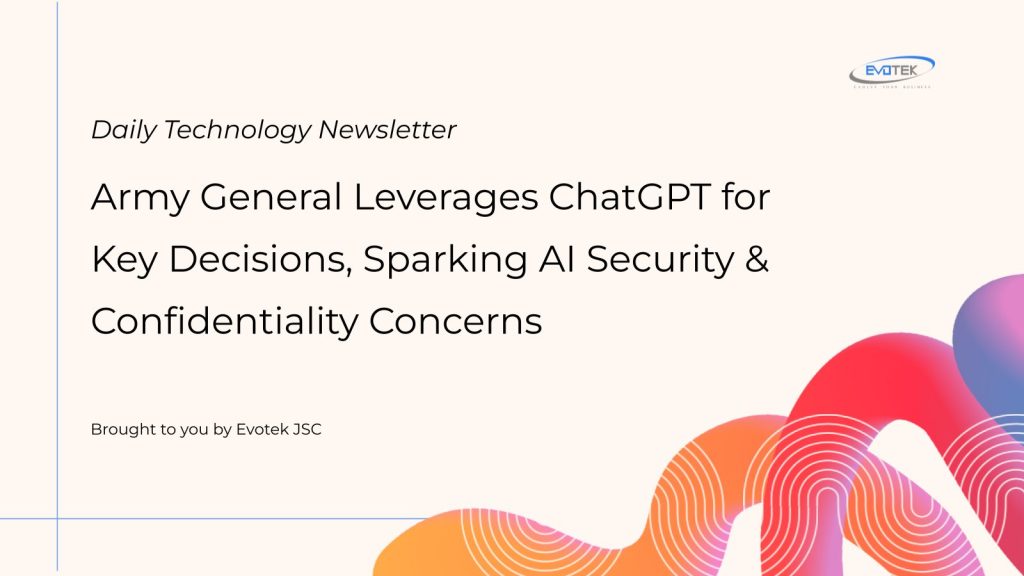A high-ranking United States Army official is employing artificial intelligence (AI) to guide crucial leadership decisions, a development that has ignited significant debate surrounding national security and data confidentiality within military operations.
Major General William Hank Taylor, the commanding general of the 8th Army, confirmed to Business Insider his use of AI platforms, including ChatGPT, for making choices that directly impact thousands of soldiers under his purview.
The Rationale: Gaining a Strategic Edge with AI
General Taylor advocates for AI as a tool to enhance the speed and quality of military decision-making. “As a commander, I want to make better decisions,” Taylor stated. “I want to make sure that I make decisions at the right time to give me the advantage.” He also revealed that “Chat and I” have become “really close lately,” indicating his reliance on AI to construct models that predict future actions based on weekly operational reports. This strategy is reportedly informed by the “OODA Loop” theory—Observe, Orient, Decide, Act—a conceptual framework developed by U.S. fighter pilots during the Korean War, emphasizing the advantage of decisive action before an adversary.
The Double-Edged Sword: Benefits and Significant Risks
The integration of AI into military strategy has drawn varied reactions. Supporters, such as former Secretaries of the Air Force, view AI as a critical factor in future conflicts, asserting that “decisions will not be made at human speed. They’re going to be made at machine speed.” They argue AI could be the key to victory on the next battlefield.
However, substantial concerns persist regarding the reliability and security of these advanced technologies. Critics point out that current AI models, including iterations like ChatGPT-5, are prone to generating errors, often presenting incorrect or illogical information as fact. This tendency can prioritize engagement over factual accuracy, posing a serious risk in high-stakes military contexts.
Confidentiality and Data Security at the Forefront
A primary apprehension revolves around the potential for sensitive information leaks. Ed Watal, CEO of Intellibus and co-founder of World Digital Governance, cautioned NewsNation about the inherent dangers of sharing classified military data with chatbots. He emphasized that for AI models to provide effective responses, they often require extensive context, inadvertently creating opportunities for confidential information to fall into unauthorized hands.
Both the Pentagon and the United Nations have issued warnings about the cautious deployment of AI in military settings. The Pentagon has urged troops to proceed with care when exploring AI tools to prevent the compromise of sensitive data. The UN recently debated AI’s role in international peace and security, describing it as a “double-edged sword.” UN Secretary-General Antonio Guterres acknowledged AI’s capacity to “strengthen prevention and protection” but also cautioned, “without guardrails, it can also be weaponized.”
Navigating the Future of AI in Defense
The embrace of AI, such as ChatGPT, by military leaders like Maj. Gen. Taylor signals a significant shift in defense strategy. While offering promises of enhanced decision-making and a strategic advantage, this integration also ushers in a complex array of challenges related to national security, data privacy, and ethical deployment. As the military continues to explore this technological frontier, the ongoing dialogue underscores the critical need for robust cybersecurity measures and clear ethical frameworks to govern AI’s role in global defense.

 日本語
日本語 한국어
한국어 Tiếng Việt
Tiếng Việt 简体中文
简体中文